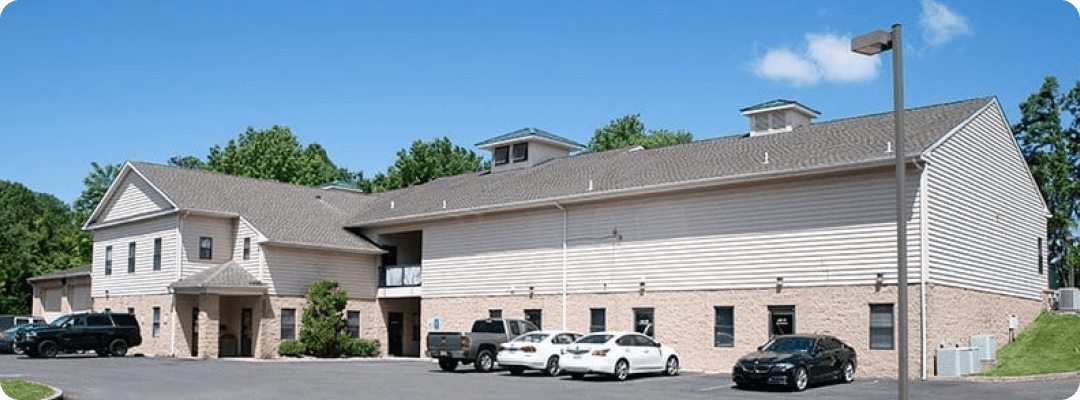If you have been looking for substance abuse treatment centers in Pennsylvania (PA), Silver Linings Recovery Center can help you. Addiction treatment programs exist particularly for those who suffer from addictions to substances like drugs or alcohol. Generally, the patient will attend a drug treatment center to receive therapy for their substance addiction. These rehab centers will provide round the clock medical attention and care needed to help patients who are ready to become sober.

Addiction treatment programs combine various kinds of counseling and therapies, depending on what each patient’s specific needs are. Some treatment forms include group, family, and individual therapeutic approaches. Since addiction treatment isn’t the same blueprint for everyone, each patient will undergo various types of treatment until the best resolution is determined.
Substance abuse treatment centers can help patients who are struggling with addiction to recover until dependence on substances no longer controls their life. Addiction changes an individual’s behaviors, which will eventually affect their work, school, and relationships. So it is necessary for people to receive help when dealing with addiction.
Treatment programs for addiction typically offer therapy and counseling to help the patient defeat those negative behaviors. As a result, individuals can regain a healthy lifestyle.
The process from the first day to the last day of a substance abuse treatment rehab program will be both difficult and necessary to achieve the primary goal, life-long sobriety. It’s critical that if you genuinely want to overcome substance addiction, you’ll need to have a full perception of what to expect.
The Four Stages Of Substance Abuse Treatment
Here at Silver Linings Recovery Center, our team of treatment specialists can provide the tools to help our patients get back on a path of sobriety. This goal drives us to offer help with every step of the recovery process.
The path to recovery during substance abuse treatment will be divided into four stages phases which include:
Assessment
The assessment process starts the moment the patient checks into rehab. Each newly enlisted patient will go through an evaluation process by our team of therapists, counselors, doctors, and support staff. This mission is to start building on the patient’s individualized treatment program.
Detoxification
Before the substance abuse treatment process begins, a detoxification program will be required to flush the body of any toxic substances. For some patients, the detoxification process becomes dangerous and must be carried out under a medical staff’s supervision.
Rehabilitation
Cleansing the patient’s system of substances is simply the beginning of the treatment process. Rehab involves learning the core issues that feed the patient’s substance addiction through therapy sessions.
Aftercare
The primary purpose of aftercare is to ensure the patient stays on track with their sobriety by using the tools they learned during rehab. Aftercare includes taking measures to ensure that patients can identify and deal with triggers and cravings.
Common Types of Substance Abuse Treatment
Substance abuse treatment programs all differ for each patient and are customized to their individual needs and circumstances. The most effective substance abuse treatment programs assure that patients in recovery are actively included in each step of the way.
Residential/Inpatient Treatment
Inpatient treatment provides structured therapy programs created to address all aspects of a patient’s addiction. During inpatient treatment, patients will live in a substance-free facility and receive 24/7 therapeutic support medical care.
This type of treatment is the most suitable option for those who are battling persistent substance addiction, and who suffer from co-occurring mental disorders.
Residential/Inpatient Treatment
Outpatient treatment is another form of comprehensive addiction therapy. These programs offer several of the same types of therapies and treatments as inpatient rehabs. But, outpatient treatment allows patients to continue to live at home throughout their recovery process. Patients can continue with school, work, and caring for loved ones while attending therapy sessions weekly.
It’s crucial to recognize that outpatient rehabs do not isolate patients from the outside world. Therefore, patients are at higher risk of facing triggers. This makes outpatient treatment best for people with mild forms of addiction and who are committed to recovery.
Outpatient treatment programs are also an exceptional aftercare program upon completing inpatient treatment. Usually, the patient will also stay at a sober living home to ensure they’re surrounded by like-minded peers focusing on sobriety.
Residential/Inpatient Treatment
Medication-assisted treatment (MAT) is a combination of medications and behavioral therapy used to treat substance addiction. This treatment is for patients with substance addictions that include FDA-approved medications, coupled with behavioral therapies and counseling, to provide a “whole-patient” approach.
During MAT, patients can securely take medications for months, years, or even a lifetime if needed. The patient’s plan is customized and created by the doctor. It should be noted that plans to stop medication use should always be consulted before changing the treatment or prescriptions.